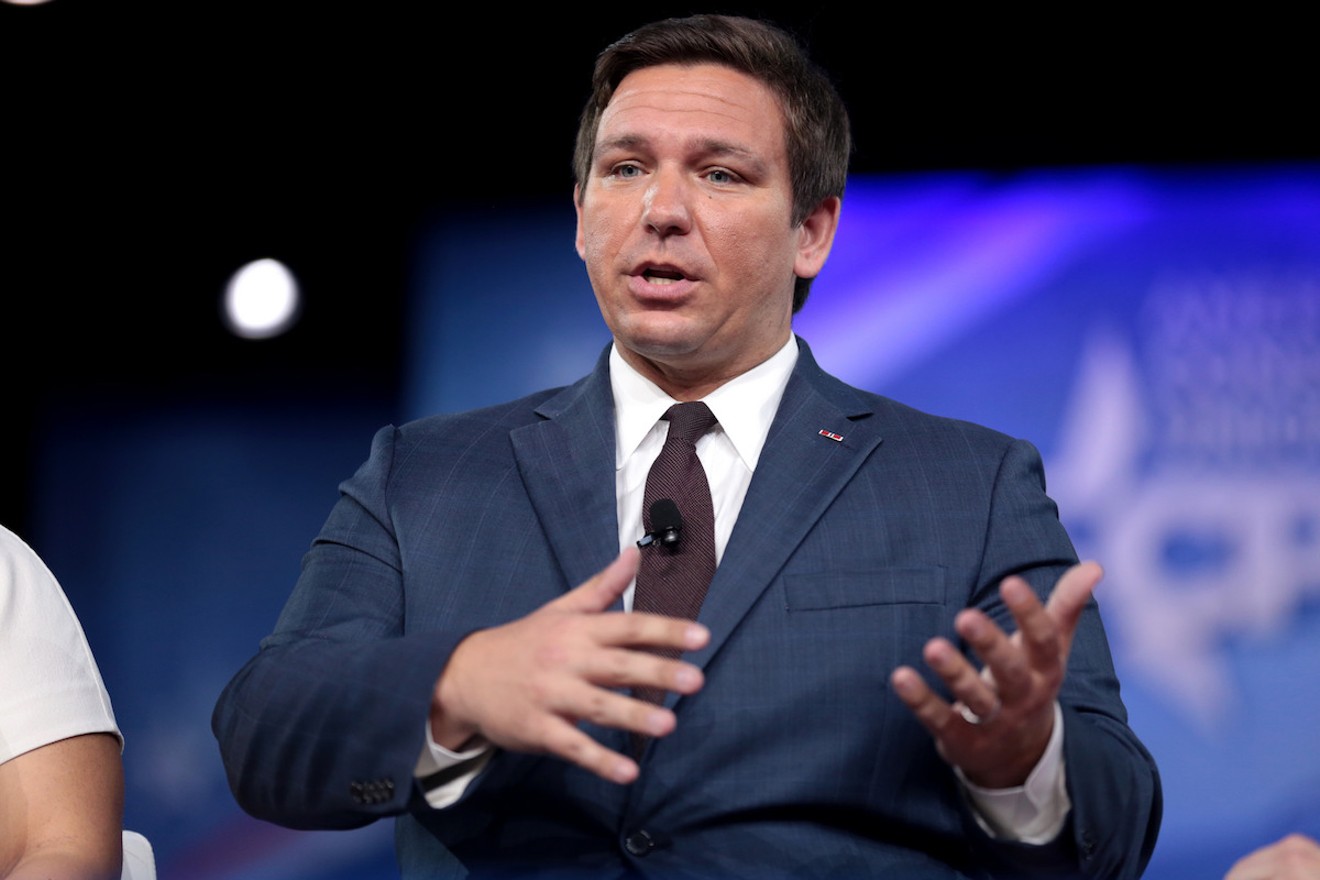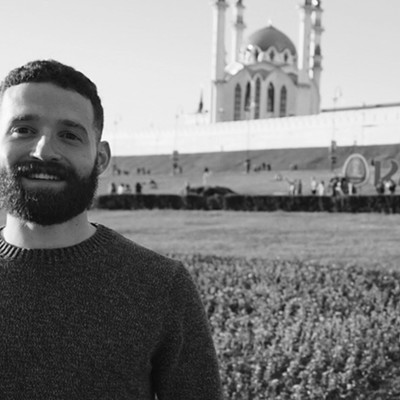The future of refugee resettlement in Florida hangs by a thread as Republican Gov. Ron DeSantis remains silent days before a crucial January 21 funding deadline.
Under an executive order signed in September by President Donald Trump, states and localities may choose whether to receive refugees in 2020. DeSantis is one of a shrinking number of holdouts: Only seven other states, six of them led by Republican governors, have yet to offer to accept more refugees, according to the resettlement agency Church World Service. Only one state, Texas, has declined to admit new refugees.
In response to an email from New Times, a DeSantis spokesperson would only say that "the Governor's Office continues to review this issue."
Florida took in about 670 refugees in the last fiscal year and has accepted more than 5,900 since the 2016 fiscal year.
"Florida has historically been one of the most important states when it comes to refugee resettlement," says Jen Smyers, policy and advocacy director for Church World Service's immigration and refugee program. "It would be tragic for Florida to stop resettlement and would have serious implications for refugees already in the state."
A decision by DeSantis to cut off refugee resettlement would also effectively preclude Florida resettlement agencies from qualifying for large amounts of federal funding. According to Smyers, agencies such as Church World Service depend on grants tied to resettlement work to keep the lights on and to fund many key services for refugees already in the state, including cash and medical assistance, English-language classes, and job training. If those federal dollars dry up, Smyers says, Church World Service could be forced to shutter its offices in Miami-Dade, Broward, and Palm Beach Counties.
Technically speaking, DeSantis could make a decision anytime before new federal contracts go into effect June 1. However, agencies such as Church World Service have until only January 21 to submit their funding proposals to the U.S. Department of State along with any letters of consent. In that sense, no decision from DeSantis could have almost the same effect as his choosing to block resettlement.
Church World Service is one of a handful of organizations that have challenged Trump's executive order in federal court. The ministry — along with the nonprofits HIAS and Lutheran Immigration and Refugee Service — argues that allowing states to opt out of refugee resettlement is a violation of federal law.
Refugee resettlement in the United States has historically been a bipartisan initiative. But that has changed with Trump, who has overseen a sharp drop in the cap of incoming refugees, from the 110,000 limit set during the last year of the Obama administration to 18,000 for the 2020 fiscal year. That's an all-time low in the 40-year history of the U.S. refugee program.
Because of Trump's sustained attacks on the resettlement program, many refugee advocates responded to the president's executive order last year with fear that certain states might decide to cut off resettlement, as many Republican-led states, including Florida, attempted to do with Syrian refugees following terrorist attacks in Europe in 2015. Those concerns have largely proven to be misplaced. Of the 42 states that have already announced their willingness to continue resettlement, 19 are led by Republican governors.
Trump's executive order also offered localities the opportunity to provide or decline consent to continued resettlement. However, the governor's decision would likely take precedence. The City of Tallahassee and Leon County have both signaled their interest in continued refugee resettlement, according to a running tally kept by Church World Service. Following the release of the executive order in September, Miami-Dade County Mayor Carlos Gimenez wrote a letter to DeSantis affirming Miami-Dade was willing to receive additional refugees.
[
{
"name": "Air - MediumRectangle - Inline Content - Mobile Display Size",
"component": "19274298",
"insertPoint": "2",
"requiredCountToDisplay": "2"
},{
"name": "Editor Picks",
"component": "17482312",
"insertPoint": "4",
"requiredCountToDisplay": "1"
},{
"name": "Inline Links",
"component": "18711090",
"insertPoint": "8th",
"startingPoint": 8,
"requiredCountToDisplay": "7",
"maxInsertions": 25
},{
"name": "Air - MediumRectangle - Combo - Inline Content",
"component": "17482310",
"insertPoint": "8th",
"startingPoint": 8,
"requiredCountToDisplay": "7",
"maxInsertions": 25
},{
"name": "Inline Links",
"component": "18711090",
"insertPoint": "8th",
"startingPoint": 12,
"requiredCountToDisplay": "11",
"maxInsertions": 25
},{
"name": "Air - Leaderboard Tower - Combo - Inline Content",
"component": "17482313",
"insertPoint": "8th",
"startingPoint": 12,
"requiredCountToDisplay": "11",
"maxInsertions": 25
}
]












